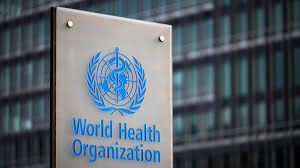
GENEVA, May 24, 2024 (BSS/AFP) - Countries trying to thrash out a global
agreement on handling future pandemics are hoping to seal the deal Friday
after weeks of creeping progress in exhausting talks.
Having ploughed past several previous deadlines, the hard stop of next week's
annual gathering of the World Health Organization's 194 member states is now
in clear sight.
Scarred by the devastation caused by Covid-19 -- which killed millions,
shredded economies and crippled health systems -- WHO member countries have
spent two years trying to hammer out binding commitments on pandemic
prevention, preparedness and response.
The Intergovernmental Negotiating Body (INB) steering the talks must report
back next week to the World Health Assembly (WHA) -- the WHO's supreme
decision-making body -- regardless of whether they have a finalised text.
"Discussions are ongoing," WHO spokesman Christian Lindmeier told a media
briefing on Friday.
"The mandate of the INB is to present the outcome, or an outcome, for
consideration at the WHA, and any consideration at the WHA would then result
in advice or action for the next steps.
"At this point, it's impossible to pre-judge what either the outcome of the
INB will be, or what follow-up the WHA would decide."
Amid arm-twisting, horse-trading and 3:00 am finishes in recent weeks, the
talks have gathered momentum.
However, with much ground left to cover, breaking the remaining logjams by
the end of Friday seems a long shot.
"There's a sense that even if we can't conclude, we will reach the WHA with
something concise," one ambassador in the talks told AFP.
On Wednesday, US Secretary of State Antony Blinken told a congressional
hearing that a conclusion this week seemed "very unlikely".
- 'It's not happening' -
The talks are being held behind closed doors at the WHO's headquarters in
Geneva.
The main disputes revolve around issues of access and equity: access to
pathogens detected within countries, and to pandemic-fighting products such
as vaccines derived from that knowledge.
Other tricky topics are sustainable financing, pathogen surveillance, supply
chains, and the equitable distribution of not only tests, treatments and
jabs, but also the means to produce them.
One source in the room said negotiators were optimistic, and could see the
finishing line and a way to get there.
"The mood in the room: you see it, you feel it, people wanting to get onto
the next thing," the source said.
But civil society groups following the talks from outside the hall seemed
less positive.
"They are negotiating, enthusiastically fighting for a speedy conclusion --
but it's not happening," K. M. Gopakumar, senior researcher with the Third
World Network, told AFP, judging the negotiators had very little chance of
finalising the agreement in the coming hours.
"If they don't wrap up on Friday -- and I don't think they will -- I think
it's going to be very close," Jaume Vidal, senior policy advisor with Health
Action International, told AFP.
"I think they will present to the assembly the skeleton of the instrument:
there is agreement on the principles and structure."
The assembly could then give instructions for the process to carry on later
in the year.
- Gradually going green -
The rolling draft agreement is not being made public, but a version as it
stood on Thursday, seen by AFP, showed large sections have been approved.
In recent days, growing chunks of text have been highlighted in yellow --
meaning the wording has been agreed to in small working groups -- and then
ultimately highlighted in green once approved by all countries.
The 32-page draft contains 34 articles, with 12 fully green and 18 partially
green. The four others are almost all in yellow.
Gopakumar said negotiators had this week "greened a few non-contentious
areas", but on "all issues which are contentious, there is no consensus".
Going into the final phase, "the attempt is to get as far as we can get,"
said INB co-chair Roland Drice.
Ellen 't Hoen, a lawyer with the Medicines Law and Policy NGO, lamented:
"Perhaps the ambition of doing this in two years was a bridge too far, the
fastest-ever negotiated UN treaty."